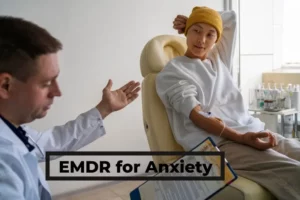Introduction
ADHD, or attention-deficit hyperactivity disorder, has been controversial for years. Some believe it is a disease; others think it is a made-up disorder. So, what do experts say? Is ADHD an actual disease or condition?The answer, according to most experts, is ADHD is an actual condition that can be diagnosed and treated. ADHD is one of the world’s most common mental health conditions, and there is an assumption that it affects boys and men more than girls and women.Despite its widespread diagnosis, there is still some debate about whether or not the classification of ADHD is a disease or disorder. This blog post will explore expert opinions on this topic and try to understand whether ADHD is an actual condition.
Is ADHD a disease or disorder? What do the experts say?
Most experts agree that ADHD is a condition that can be diagnosed and treated. The Diagnostic & Statistical Manual of Mental Disorders (DSM-5), used by professionals in the mental health field, includes ADHD as an actual condition [1]. Furthermore, many treatments are available for ADHD, such as medication and therapy, which support the argument that it is a real condition.However, some experts believe this is not the case. These experts argue ADHD is not an actual disease or disorder because it cannot be measured objectively, such as with blood tests or brain scans [1]. Furthermore, they argue that the symptoms of ADHD are not consistent and can vary significantly from person to person.Therefore, they believe ADHD is not a natural condition but a collection of symptoms that are a result of different underlying conditions. This perspective seems to be changing in recent decades, however. More mental health care professionals realize ADHD is an actual condition and should be diagnosed appropriately and in time [2].
Differences between diseases and disorders
Understanding the differences between diseases and disorders is essential when discussing ADHD. A disease is a medical condition that alters the body’s normal functioning, and the actual cause of the disease is an infection, genetic defects, or environmental factors. A disorder, on the other hand, is a condition that affects a person’s mental state, and the cause of it is psychological factors. While the classification of ADHD is a disorder, it is essential to remember that it is a medical condition that can alter the brain’s normal functioning. It is necessary to seek professional help if you or your child are exhibiting symptoms of ADHD.ADHD is a disorder because it affects how a person thinks and behaves. Living with ADHD can be confusing without the proper guidance. The symptoms can sometimes get out of hand and impede daily life, and ADHD can be counter-productive if left untreated. While there is no known cure for the disorder, treatments are available that can help people manage their symptoms.While considering ADHD a disorder because it affects brain function, it is not classified as a disease. It is because there is no known cause of ADHD, and it does not alter the brain’s physical structure. Instead, experts believe that genetic and environmental factors cause ADHD [3].
The controversy around medication for ADHD
There is a lot of controversy around the medication used to treat ADHD. Some experts say it is a disease requiring medication. Others believe therapy is the right way to treat this disorder. Some parents are concerned about the side effects of the drug, while others believe it is the best option for their child. The bottom line is that individuals are different and will respond to treatment differently. One of the most common questions is: What is the best age to start treatment for ADHD?
There is no one answer to this question. Some experts believe that children can be diagnosed with ADHD starting at the age of four [2]. The child’s doctor should decide when to start treatment. Working with a professional who can help you determine the best course of action for your child is essential.
Available treatments for ADHD
There are a variety of treatments available for ADHD, both medication and non-medication based.
Medications
Stimulant medications help to control the symptoms of ADHD. These can effectively manage hyperactivity and impulsivity and improve attention span.
Non-stimulant medications can also effectively treat ADHD symptoms.
Therapy
Behavioral therapy, either in the form of individual therapy or behavioral modification programs, can help manage the symptoms of ADHD [3]. These therapies can help teach individuals with ADHD how to control their impulses better and manage their time and tasks. Behaviour therapy focuses on teaching time management, organization, and social skills. This type of therapy can be effective in helping people with ADHD learn how to cope better with their symptoms.
Conclusion
There is still much debate about whether ADHD is a disease or a disorder. However, many experts believe it is likely both, depending on the individual case [4]. Whatever the label, it is essential to remember that ADHD can seriously impact someone’s life and its treatment requires care and understanding.If you think you or someone you know has ADHD, consult with a qualified professional who as they are equipped to help you get the treatment you need. United We Care is a platform dedicated to mental health and well-being. Our therapists and psychologists have experience working with people of all ages and from different walks of life. Contact us today to seek help dealing with ADHD or any other mental health issues.
References
- “Hyperactivity: Medical reality or convenient excuse?,” WebMD. [Online]. Available: https://www.webmd.com/add-adhd/childhood-adhd/features/hyperactivity-reality-or-excuse#:~:text=While%20there’s%20sometimes%20a%20grain,anything%2C%2n.d.HD%20is%20often%20underdiagnosed. [Accessed: 02-Mar-2023].
- “Attention deficit hyperactivity disorder: Diagnosis … – NCBI bookshelf.” [Online]. Available: https://www.ncbi.nlm.nih.gov/books/NBK493361/. [Accessed: 02-Mar-2023].
- S. Marie, “What causes ADHD: Is it nature or nurture?,” Healthline, 23-Sep-2021. [Online]. Available: https://www.healthline.com/health/adhd/environmental-causes-of-adhd. [Accessed: 02-Mar-2023].
- “ADHD: Symptoms, types, testing, and treatment,” WebMD. [Online]. Available: https://www.webmd.com/add-adhd/attention-deficit-hyperactivity-disorder-adhd. [Accessed: 02-Mar-2023].











